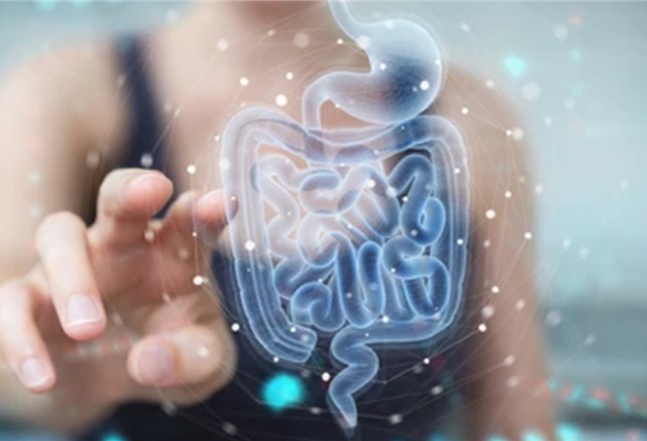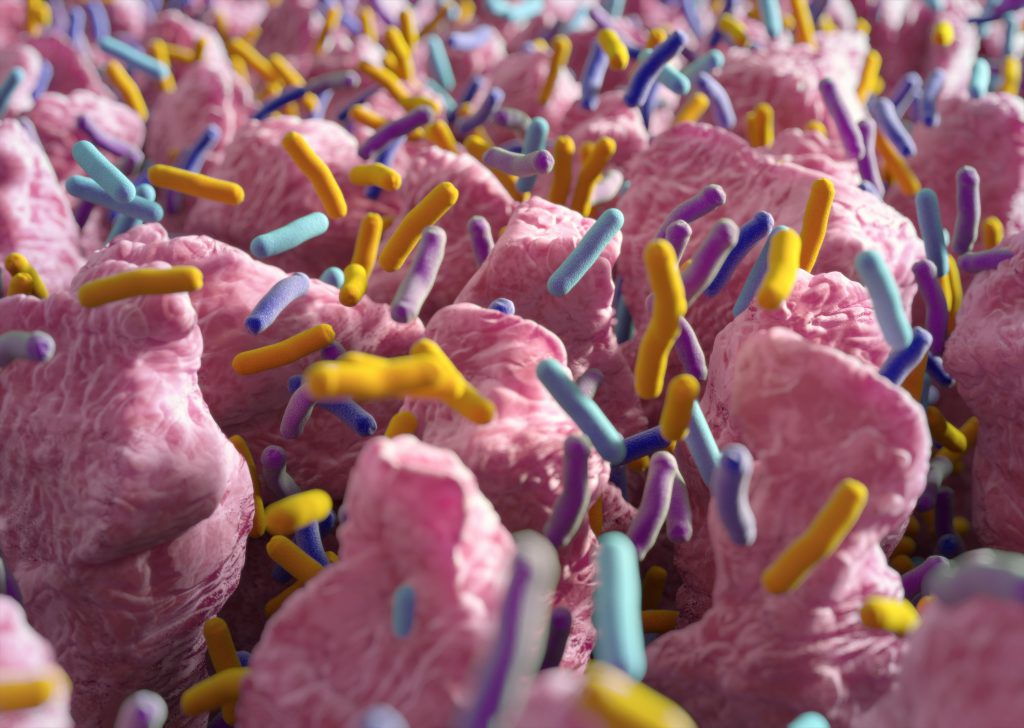Connie: Dear friends, it’s great to have you here with us. Thank you for tuning in to today’s show. And today, we have also invited our old friend, Dr. Leonard Hofstadter, who has been an editor of scientific journals for a long time. Thank you for joining us, Dr. Hofstadter.
Dr. Hofstadter: Thanks for inviting me, Connie. Good evening, everyone. I’m very excited to be here.
Connie: In the last episode, we discussed the potential of probiotics against diabetes. In patients with type II diabetes, after intestinal obesity treatment, the composition of intestinal microbes will change significantly. If we can find a way to change the intestinal microflora, there is hope to improve the therapies for diabetics. As more gut microbes are discovered and the relationship between the colonies is cleared up, soon we can expect to treat diseases such as diabetes by adding or removing certain bacteria. So with that said, where should we start for today’s discussion, Dr. Hofstadter?
Dr. Hofstadter: By now, we all know that the intestine is composed of a complex microbial ecosystem with specific and protective metabolic functions. The intestinal microflora is a community of microorganisms living in the digestive tract. It’s composed of microorganisms that are pathogenic, neutral, or beneficial to the host. Microorganisms beneficial to the host are usually mainly included in dairy products. They are essential for the normal growth of the body, the development of immunity, and the development of nutrition. These microorganisms exercise nutrition, metabolism, and protection functions, and are indispensable to the host while providing nutrition and adequate growing conditions.
Connie: Remind us what the main functions of the gut microflora are?
Dr. Hofstadter: The intestinal microflora is mainly involved in a variety of functions. Such as the metabolism of certain carbohydrates, the specialization and activation of the immune system, the regulation of intestinal cell growth, and the synthesis of certain vitamins. Some bacteria in the gut microflora have enzymes that can digest certain carbohydrates that cannot be processed.
Connie: What is the process of intestinal microbes fermenting carbohydrates? And what are the main resulting products of this process?
Dr. Hofstadter: More or less complex polysaccharides, such as those that make up insoluble dietary fiber, undergo the fermentation process of the intestinal microflora to produce products such as short-chain fatty acids. These products are good for the metabolism of carbohydrates and cholesterol.
Connie: What are the diseases related to the imbalanced composition of intestinal flora or the lack of microbial abundance?
Dr. Hofstadter: Well, most diseases we have talked about on this show, which are obesity, diabetes, asthma, or certain types of cancer. And possibly other diseases such as Parkinson’s disease or autism.
Connie: I’m curious about the causes of various symptoms of diarrhea related to intestinal microbes?
Dr. Hofstadter: Several acute diarrheal diseases are caused by pathogens that proliferate and are aggressive or produce toxins. And your last question answers this one for you, antibiotic-related diarrhea is caused by the imbalance between the composition of the intestinal flora and the proliferation of pathogenic bacteria. For example, some toxins produced by Clostridium difficile can cause pseudomembranous colitis.
Connie: The colon is the first part of the large intestine. It absorbs water and nutrients from food and serves as a storage place for solid waste. What is the role of probiotics in colon cancer?
Dr. Hofstadter: You know that colorectal cancer occurs in the digestive system. The digestive system is the main part of food processing, energy production, and solid waste treatment. The current experimental model shows that intestinal bacteria can play a role in the occurrence of colon cancer by forming carcinogenic products. The number and variety of human intestinal microflora are huge. You know, this is reflected in its extensive and diverse metabolic capabilities, especially related to the biotransformation of exogenous substances and the synthesis and activation of carcinogens.
Connie: The molecular genetic defects that appear in human colorectal cancer are well known. Can you tell us the cause? Like what factors are involved in the occurrence of colorectal cancer?
Dr. Hofstadter: The problem you are talking about seems to be the result of the genotoxicity of the products produced by intestinal light. Epidemiological data show that environmental factors such as diet play an important role here. Eating animal fat and red meat, especially processed meat, can cause a higher risk of cancer.
Connie: Wow, I have heard that before. It’s hard to imagine since the meat consumption rate is pretty high nowadays. Can probiotics reduce the risk of cancer by eliminating mutations in the intestines?
Dr. Hofstadter: Some probiotics can degrade the mutant substances present in the intestines and reduce their genotoxicity, but the exact mechanisms have not been fully elucidated. Combining probiotics with certain heterocyclic amines can reduce enzyme levels, like azo reductase, nitroreductase, β-glucuronidase, β-glucosidase, and 7-a-dehydratase. These enzymes can regenerate and detoxify in the liver and excrete processed toxic substances.
Connie: A wide range of sources supports that the colonic microbiota interferes with the etiology of cancer. The conclusion drawn from this is that changes in the intestinal flora will interfere with the cancerous process. What does it imply for the treatment of cancer?
Dr. Hofstadter: I think this opens up the possibility of changing diet to reduce the risk of colon cancer. In the Western world, colon cancer is a major cause of death. Approximately 70 percent of colon cancer are related to environmental factors, probably mainly diet. Most colon cancers are caused by polyps that start to grow in the lining of the colon or rectum. In this regard, studies have shown that fermented dairy products can prevent colorectal cancer.
Connie: At present, the probiotic lactic acid bacteria have been proven to inactivate carcinogenic genotoxic substances. Do you have the reason behind it?
Dr. Hofstadter: Let me give you some studies. In an in vitro model system, the probiotic lactic acid bacteria were shown to prevent mutations. In living colon tissue, they can prevent DNA damage and stimulate the protective system. These bacteria may act as chemical protective agents against genotoxic chemicals. But further research is needed to clarify and quantify their beneficial effects in preventing human colon cancer. There are other studies that have shown that probiotics can prevent colon cancer by producing short-chain fatty acids, which can acidify the environment and exert cellular anti-inflammatory and apoptosis effects. These cells may become carcinogenic, thereby reducing the risk of cancer.
Connie: I see. So by now, we have learned that probiotics can produce a variety of metabolites, which is a very effective natural preservation method. One of its applications is to provide food additives with flavor, smell, texture, and even nutritional value. For a long time, they have been used in industrial applications, mainly as starters, biocontrol agents, or probiotics for fermentation. Due to the production potential of polylactic acid as biodegradable plastic polymers and biocompatible derivatives of petrochemical products, they have been widely used in the chemical industry. Several strains of lactic acid bacteria have been proven to have probiotic properties, and their biomass can be considered a high-value product.
Dr. Hofstadter: That’s exactly right. And since lactic acid bacteria are also found in the microflora of the GI tract, they can produce different substances to avoid some adverse effects of certain microorganisms. Only by changing their metabolism without disrupting the metabolism, their number will decrease. As we mentioned earlier, lactic acid bacteria have a great fermenting ability, and organic acids are produced by simple carbohydrates. This determines the increase in intestinal acidity, which limits the growth of bacteria, especially Gram-negative bacteria. And we know that the function of lactic acid bacteria is very useful in the industry. For example, the bacteriocin produced by lactic acid bacteria has achieved a successful effect in preserving meat products. It controls pathogenic microorganisms that may cause some changes, such as Salmonella and Escherichia coli.
Connie: And probiotics have a highly developed defense system against stress factors, and they can survive in a large number of changes or conditions. It is necessary to understand the response of these bacteria to stress conditions in order to select the right ones. Because their different applications depend on the conditions under which they can be found and thorough research, more fields can benefit from this large group of bacteria. Ok, So much for our content today. Thanks everyone for listening. I hope you enjoyed today’s show. And thanks Dr. Hofstadter for your time and input. We will continue our discussion next week. See you then.
Dr. Hofstadter: Thanks for having me. I hope we will see you next time.
